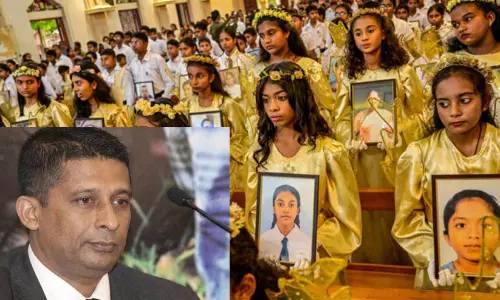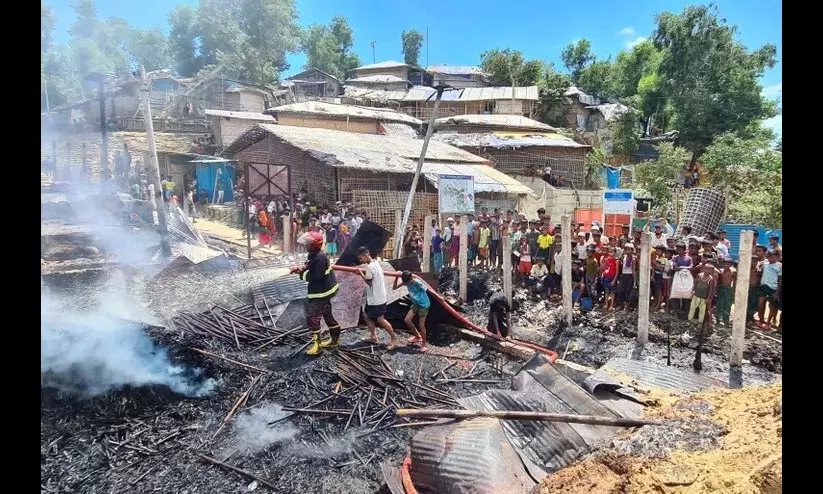
Amid allegations of beheading, burning, 45,000 Rohingya flee Myanmar
text_fieldsMore than a million Rohingya have already fled Rakhine State, including hundreds of thousands in 2017, and most have been staying as refugees in Bangaladesh's Cox's Bazar | Photo: AFP
Amid growing violence in areas ravaged by conflict, the UN has warned that around 45,000 Rohingya, a minority group in Myanmar's Rakhine State, have been forced to flee due to accusations of beheadings, killings, and property burning.
After the Arakan Army (AA) rebels attacked the army of the reigning military government in November, clashes erupted in Rakhine State ending a ceasefire that had mainly been held since a military coup in 2021.
The Muslim minority, long viewed as foreigners by the majority Buddhist residents, has found itself caught in the centre of the violence, whether it is from the government or the rebel side, Al Jazeera reported.
According to the AA, the state is home to an estimated 600,000 members of the persecuted Rohingya Muslim minority who have decided to remain in the nation, and it is also campaigning for more autonomy for the ethnic Rakhine community living there.
Over a million Rohingya have sought refuge in neighbouring Bangladesh after leaving Rakhine, with hundreds of thousands having fled an earlier military crackdown that is currently the focus of a United Nations genocide court case.
The fighting in Buthidaung and Maungdaw townships has resulted in the displacement of tens of thousands of civilians in recent days, UN rights office spokesperson Elizabeth Throssell told reporters in Geneva on Friday.
“An estimated 45,000 Rohingya have reportedly fled to an area on the Naf River near the border with Bangladesh, seeking protection,” she said, as she urged the protection of civilians according to international law.
UN rights chief Volker Turk was urging Bangladesh and other countries “to provide effective protection to those seeking it, in line with international law, and to ensure international solidarity with Bangladesh in hosting Rohingya refugees in Myanmar”, she said.
However, with over a million Rohingya already in the nation, according to Al Jazeera's Tanvir Chowdhury, reporting from Cox's Bazar, Bangladesh, the administration has been hesitant to accept more, leaving the most recent arrivals stranded on the Myanmar side of the border.

















